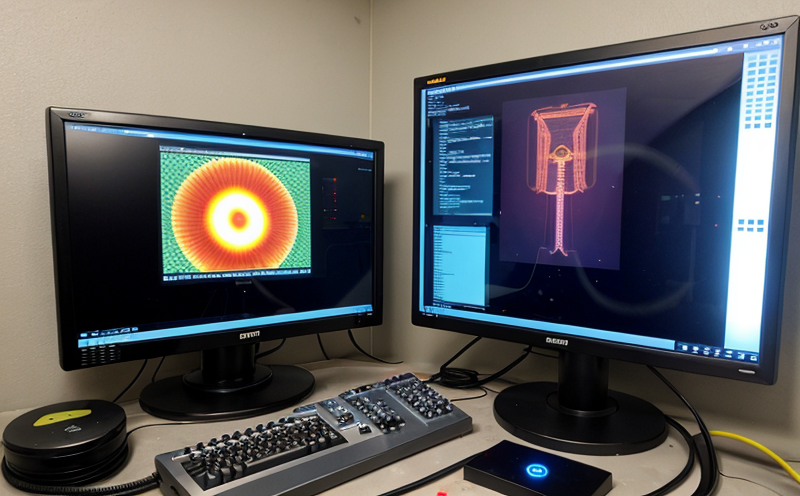IEC TR 61000 3-7 EMC Assessment of Power Quality Parameters
The IEC TR 61000 3-7 standard is a crucial document for assessing the electromagnetic compatibility (EMC) of power quality parameters in electronic and electrical equipment. This technical report provides comprehensive guidance on measuring, characterizing, and evaluating the impact of power quality disturbances such as voltage variations, flicker, voltage dips, and interruptions.
Power quality is critical to ensuring reliable operation of electronic devices within their intended environments. Poor power quality can lead to reduced performance, increased maintenance costs, shortened product lifetimes, and even complete failure of equipment. By adhering to IEC TR 61000 3-7, organizations can ensure that their products meet stringent EMC requirements set forth by regulatory bodies worldwide.
The standard covers both the measurement and evaluation aspects of power quality parameters in a controlled laboratory environment as well as on-site conditions. It specifies methods for measuring voltage variations, flicker, voltage dips, and interruptions using appropriate instrumentation and test procedures. These tests are essential for identifying potential issues that could arise from poor power quality before they become significant problems.
A key aspect of IEC TR 61000 3-7 is its emphasis on the importance of selecting representative measurement points within the supply network. This ensures accurate representation of real-world conditions during testing, which helps in making informed decisions regarding product design and performance.
Another important feature of this standard is its focus on providing guidelines for interpreting test results based on internationally accepted criteria such as IEC 61000-4 series standards. This allows manufacturers to compare their products against industry benchmarks, ensuring consistent quality across different markets.
In summary, compliance with IEC TR 61000 3-7 is vital for any company involved in designing or manufacturing electronic devices that will operate within diverse power environments. By following these stringent guidelines, companies can improve the overall reliability and robustness of their products while also meeting regulatory requirements.
At Eurolab, we have extensive experience in conducting IEC TR 61000 3-7 EMC assessments for various types of electronic equipment ranging from consumer goods to industrial machinery. Our team of experts uses state-of-the-art measurement systems and adheres strictly to international standards during all stages of testing.
Our approach includes:
- Identifying appropriate measurement points within the supply network
- Conducting thorough initial surveys to understand existing power quality conditions
- Selecting suitable test procedures based on specific equipment characteristics
- Performing rigorous measurements using calibrated instruments
- Analyzing data according to internationally recognized criteria
- Evaluating results against predefined acceptance limits
- Providing detailed reports outlining findings and recommendations for improvement
This comprehensive process ensures that every aspect of power quality is thoroughly examined, providing valuable insights into potential areas for enhancement.
Eurolab Advantages
At Eurolab, we pride ourselves on offering top-tier services tailored specifically to meet the needs of our clients. When it comes to IEC TR 61000 3-7 EMC assessments for power quality parameters, we bring several key advantages:
- Expertise and Experience: Our team comprises highly qualified professionals with years of experience in conducting EMC testing. They stay updated with the latest trends and developments in the field.
- State-of-the-Art Facilities: We possess world-class laboratories equipped with advanced equipment capable of delivering precise measurements under controlled conditions.
- Detailed Reporting: Our reports are not only accurate but also easy to understand, providing clear recommendations for improving product performance and meeting regulatory requirements.
- Compliance Assurance: By adhering strictly to international standards like IEC 61000-4 series during our testing procedures, we ensure that your products meet all necessary criteria for successful market entry.
- Cost Efficiency: Our streamlined processes and efficient use of resources mean you get high-quality results without unnecessary expenses.
- Custom Solutions: Every project is unique; therefore, our services are designed to cater specifically to your requirements, whether it’s for a single product or an entire range of products.
Incorporating these advantages into our service offering ensures that you receive the best possible support throughout the EMC assessment process.
International Acceptance and Recognition
The International Electrotechnical Commission (IEC) TR 61000 3-7 standard enjoys widespread acceptance across many countries due to its rigorous approach towards assessing power quality parameters. Many national standards organizations have adopted this document as part of their regulatory frameworks, ensuring consistent application worldwide.
For instance, the European Union's Low Voltage Directive (LVD) and International Electrotechnical Commission's IEC 61000-4 series standards both incorporate aspects covered by IEC TR 61000 3-7. This integration highlights the importance placed upon this technical report within international regulatory landscapes.
Additionally, numerous countries such as China, Japan, South Korea, and others have referenced or incorporated parts of IEC TR 61000 3-7 into their respective national standards for electronic products. This global recognition underscores the significance of adhering to these EMC assessment practices when designing and manufacturing electrical equipment.
The wide acceptance of IEC TR 61000 3-7 also contributes significantly towards facilitating trade between nations by harmonizing technical requirements across borders. Companies that comply with this standard can expect smoother regulatory processes and increased confidence among international buyers regarding the quality and reliability of their products.
Environmental and Sustainability Contributions
The thorough assessment of power quality parameters through IEC TR 61000 3-7 plays a significant role in promoting environmental sustainability by enhancing the efficiency and reliability of electronic devices. By identifying and addressing issues related to poor power quality, manufacturers can design products that operate more efficiently, consume less energy, and generate fewer emissions.
For instance, optimizing voltage levels can lead to reduced electrical losses in transmission lines, thus conserving valuable resources. Similarly, minimizing flicker or voltage dips helps prevent unnecessary strain on renewable energy sources like solar panels and wind turbines, ensuring smoother integration into existing grids.
In addition to direct environmental benefits, adhering to IEC TR 61000 3-7 also contributes indirectly by fostering innovation within the electronics industry. As manufacturers strive to meet higher standards of power quality, they are encouraged to develop more efficient and sustainable technologies. This ongoing pursuit of excellence ultimately leads to a greener future.





